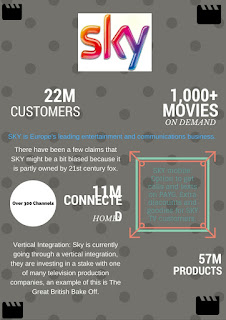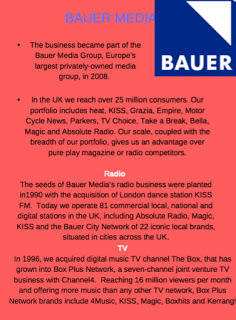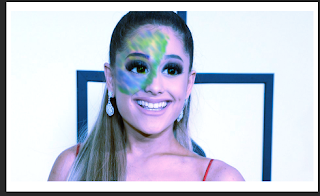Assignment One- Media Industry Structure
ASSIGNMENT ONE- MEDIA INDUSTRY STRUCTURE
TASK ONE
Media Ownerships:
- Private- This is when a company is owned privately by an individual or a small group of people, an example of this is MTV. This is funded by advertising only and privately owned normally have a wider range of channels to fit different audiences, for example, MTV is aimed at the ages of 16-24 as the shows broadcasted are a mixture of reality shows and music which is mainly aimed at the younger generations. Which also raises the fact that the advertisements will be different on a channel like discovery compared to MTV. One channel that aims to attract all audiences is the BBC, they broadcast a range of different shows throughout the day to allow a bigger selection of people to view something they like without searching through tonnes of channels, they are publicly owned.
The advantage with a private ownership is that it is run on advertising funds meaning that companies can advertise their products through the privately owned tv licences, this also means that the more popular the shows and the channels are, it will cost more to advertise making the channels to gain money to support the funds of running each show. There is one main issue with privately owned is that because the BBC is publicly owned, before each show a lot of money is invested into researching audiences and what would be popular before they even decide to fund a show.
- Public Owned- This is a company that is owned by a mass amount of people and it is controlled financially by the state. The BBC which is funded by the government which is what we pay for as the TV License. The main thing with being publicly owned and the fact that it is government run they have to cater for the viewers wants and interests and because The BBCis paid for by the public they don't show any advertisements like every other radio or tv show.
The advantage of public ownerships are that because it is based on what the viewers like most which means that the purpose of The BBC is purely based around the public. This also means that is a show that is being broadcasted doesn't get a lot of views they will scrap the idea or cut the program. One disadvantage of this is that majority of people want to subscribe to companies like Sky and Virgin and are willing to pay more money that just a standard TV License which only funds one channel which is the BBC.
- Public Service- Public service broadcasting is a non-commercial broadcasting, for example programs that are broadcasted by the British Broadcasting Corporation. It refers to TV programs that are only broadcasted for the purpose of the public viewing rather than for commercial purposes. These programs include local news coverages, arts programs and for commercial purposes. TV and radio broadcasters are obliged to include a specific amount of public service broadcasts as part of their license in able to broadcast.
- Multi-Nationals- A multinational corporations are "organisations that are owned or control productions of goods or services in one or more countries other than the home country.MNC's plays an important role in globalization. Arguably, the first multinational business organization was the Knights Templar, founded in 1120. After that came the British East India Company in 1600 and then the Dutch East India Company, founded March 20, 1602, which would become the largest company in the world for nearly 200 years." They are sometimes referred to as "transnational corporations". Pretty much all major multinationals are either "American, Japanese or Western European- these include Nike, Coca-cola, Walmart, AOL, Toshiba, Honda and BMW."
- Independent- This refers to any form of media, this can be in the category of radio, newspapers, television and the internet. An independent business that is free from outside control and is usually meant to be privately owned and in many cases, independent businesses are "proprietorship companies."
- Conglomerate- This is a company that owns many other companies in various different mass medias for example: Radio, publishing and television. They drive for policies that facilitate their control of the markets across the globe. A few multinational media conglomerates control more sources of information including television networks, cable channels, publishing, television stations which have vanished since 1975.
Gathered some of this information from:
http://www.investopedia.com/terms/p/privately-owned.asp
http://ask.ofcom.org.uk/help/television/what_is_psb
http://www.investopedia.com/terms/m/multinationalcorporation.asp
https://www.citelighter.com/communications/communications/knowledgecards/media-conglomerates
TASK TWO


Leanne's Infographics


TASK THREE
When comparing these to the ones we have researched it is evident that Sky is more popular than the other three as it has 22 million customers or more.
Although Sky is very popular DMG media reach 59% of the adult population and they are the consumer median company of DMGT. "An international business built on entrepreneurship and innovation, which brings together leading companies and talented people to provide business and consumers with high-quality analysis and insight, information, news and entertainment."
http://www.dmgmedia.co.uk/about-us
TASK FOUR


Comments
Post a Comment